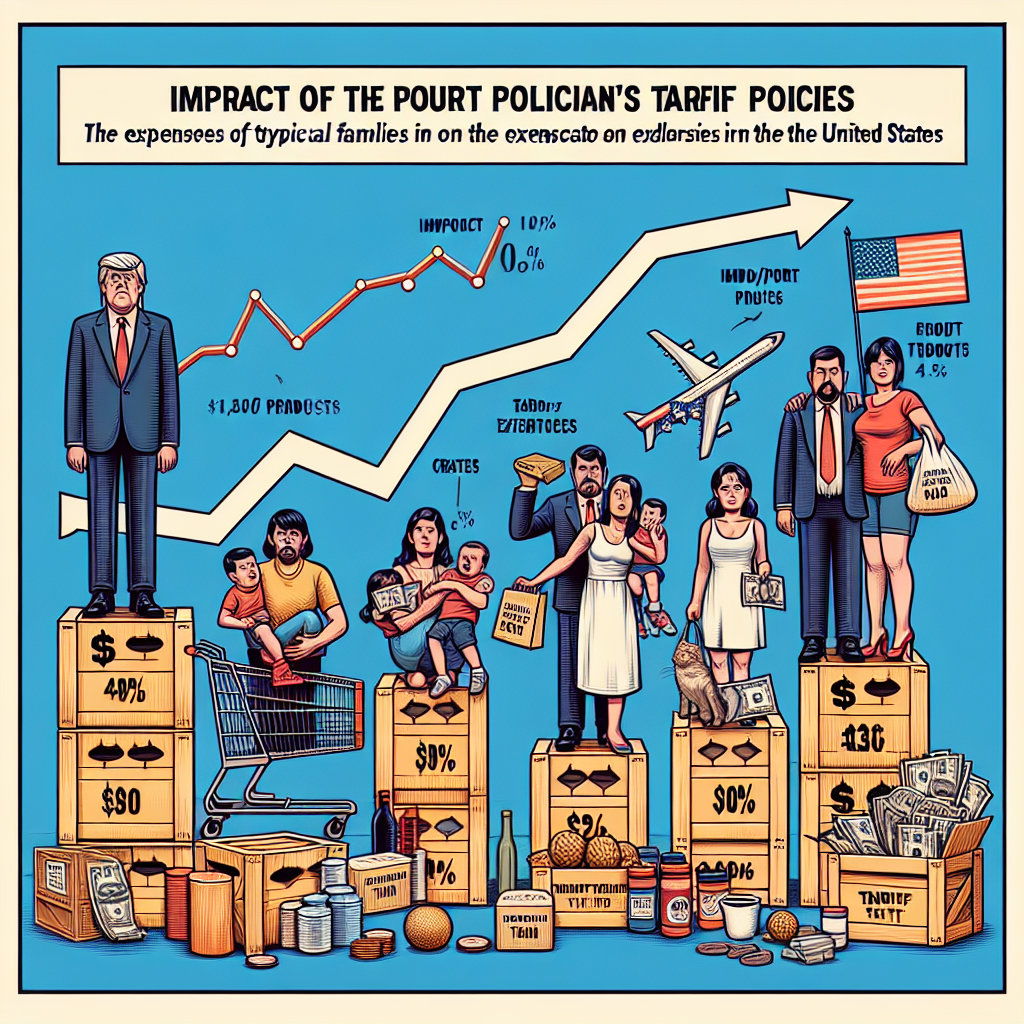The Impact of Donald Trump’s Tariffs on US Family Expenses
The Impact of Donald Trump’s Tariffs on US Family Expenses
Introduction
Donald Trump’s administration implemented a series of tariffs aimed at protecting American industries and reducing trade deficits. However, these tariffs have had significant repercussions on the expenses of US families. This summary explores the multifaceted impact of these tariffs on household budgets.
Increased Costs for Everyday Goods
One of the most immediate effects of the tariffs was the increase in prices for a variety of consumer goods. Families across the United States felt the pinch in several areas:
- Electronics: Tariffs on Chinese imports led to higher prices for smartphones, laptops, and other electronic devices.
- Groceries: Tariffs on agricultural products resulted in increased costs for certain food items, affecting grocery bills.
- Automobiles: Tariffs on steel and aluminum raised the cost of manufacturing, leading to higher prices for cars and automotive parts.
Impact on Household Budgets
The rise in prices due to tariffs has forced many families to adjust their spending habits. Key impacts include:
- Reduced Disposable Income: With more money spent on essential goods, families have less to allocate towards savings and leisure activities.
- Budget Adjustments: Many households have had to re-evaluate their budgets, cutting back on non-essential purchases.
- Increased Debt: Some families have turned to credit to manage the increased costs, leading to higher levels of household debt.
Long-term Economic Implications
The tariffs have not only affected immediate family expenses but also have broader economic implications:
- Inflationary Pressures: The increased cost of goods contributes to overall inflation, affecting the purchasing power of consumers.
- Supply Chain Disruptions: Tariffs have led to shifts in supply chains, impacting the availability and cost of goods.
- Trade Relations: The tariffs have strained trade relations with key partners, potentially affecting future economic growth.
Conclusion
In summary, while the tariffs introduced by Donald Trump’s administration aimed to bolster American industries, they have inadvertently increased the financial burden on US families. The rise in prices for everyday goods, coupled with broader economic implications, highlights the complex nature of trade policies and their far-reaching effects on household expenses.














